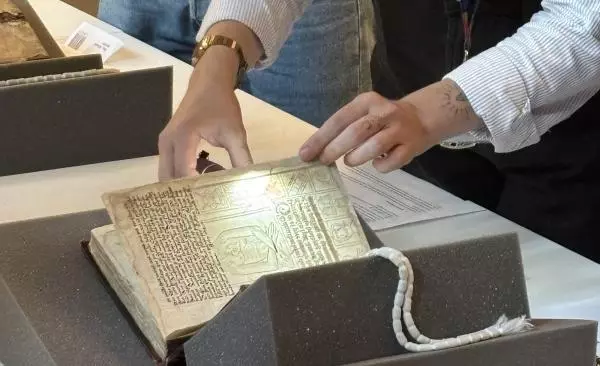
Oxford, United Kingdom
The Secret Lives of Books: Parchment, Printing-Presses, and Paperbacks
When:
20 July - 07 August 2026
Credits:
7.5 EC
Read more
Cultural Studies
When:
03 August - 14 August 2020
School:
UCPH International Summer programme
Institution:
University of Copenhagen
City:
Country:
Language:
English
Credits:
7.5 EC
Fee:
1875 DKK

This course will focus on the humanitarian issue of ensuring the effective protection of our common cultural heritage during armed conflict, as well as the various actors at play in securing its enforcement. The course will first provide an historical and theoretical overview of the longstanding relationship between culture and conflict and key literature on cultural rights, after which it will delve into the practical application of international law on the protection of cultural heritage, particularly in the context of armed conflict.
Joanne Dingwall McCafferty
Bachelor and Master students
Knowledge and understanding of:
- Theoretical and historical discourses on the relationship between culture and conflict and what this relationship looks like in modern
warfare;
- The 1954 Hague Convention for the Protection of Cultural Property in the Event of Armed Conflict and its practical application;
- Specific theories and discourses on the role of the military in the protection of CP;
- The role of key international organisations such as UNESCO in the protection of CP;
- The main challenges the heritage community face in ensuring active global implementation of CPP during peacetime and armed
conflict.
Skills in:
- Researching and discussing the key developments and differences in how culture is utilized across historical and modern conflicts;
- Strategically identify key Articles from the 1954 Hague Convention and developing arguments for and against their effectiveness
when it comes to their practical application during peacetime and armed conflict;
- Identifying and discussing the various roles of key parties involved in the implementation of CPP in the context of armed conflict;
- Disseminating research-based knowledge about theoretical and practical discourse relating to the protection of CP in the context of
armed conflict to a specialist and non-specialist audience, such as the military.
Competences in:
- Generating knowledge on the theoretical, legislative and practical enforcement of CPP during modern armed conflicts;
- Applying document analysis to different forms of texts, such as international legislation, policy, UN Security Council Resolutions and
the surrounding commentary;
- Formulating a research problem, applying relevant theoretical framework and methodology and designing an independent research
process;
- Critical reflection on past and current challenges in the protection of CP in armed conflict and the ability to strategize practical
solutions.
Fee
1875 DKK, EU/EEA/Swiss applicants Non-EU/EEA/Switzerland applicants with a permanent Danish residence permit or with a temporary residence permit with a view to permanent residency in Denmark
Fee
9375 DKK, Non-EU/EEA/Swiss applicants
When:
03 August - 14 August 2020
School:
UCPH International Summer programme
Institution:
University of Copenhagen
Language:
English
Credits:
7.5 EC

Oxford, United Kingdom
When:
20 July - 07 August 2026
Credits:
7.5 EC
Read more

Glasgow, United Kingdom
When:
18 June - 02 August 2026
Credits:
12 EC
Read more

Glasgow, United Kingdom
When:
18 June - 02 August 2026
Credits:
12 EC
Read more